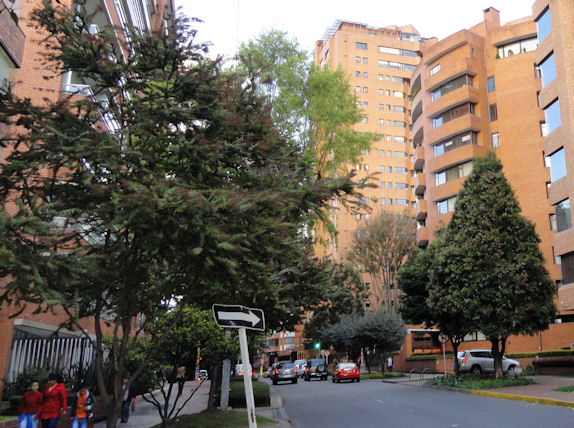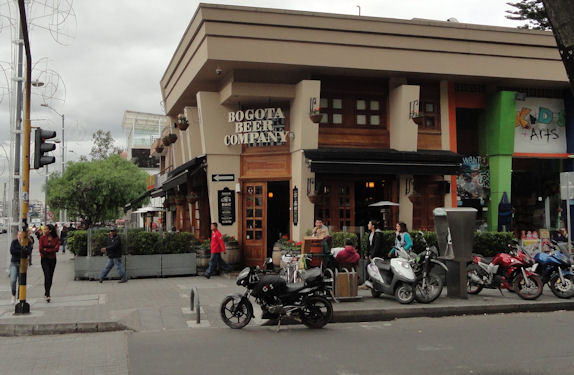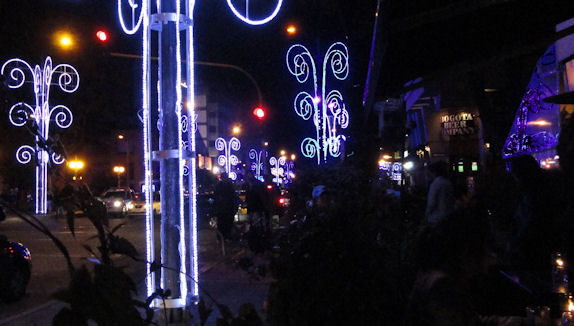
I didn’t get much time in Bogotá but from what I saw it was a nice city and people were friendly. It is very clean and looks a lot like some places in the Eastern U.S. You can see pictures interspersed in the text. I was there for a PAO conference. It is useful to learn about my colleagues’ challenges, since our jobs are mostly similar.
Budget cuts and sequester will increasingly constrain our work. I could adapt to the cuts in money, but the threat is staff. The 2 for 1 is still in place. That means that we can fill only one position for every two that fall open. It ratchets down our staffs, but that is not the most immediate problem. The conditions we face are changing. It would make sense to reconfigure my staff to adapt to the changes. But if I change the job descriptions sufficiently, they become “new” positions, subject to the 2 for 1 rule. I will leave Brazil next July. The rule will last longer than I will. This means that I will be unable to do any real restructuring. I don’t want to use this as an excuse, but it is a reason.

On the plus side, I can live with limits on travel.Fortunately, the travel ceiling is based on 2010.When I arrived in 2011, I reformed the way we travel.It was not rocket science.We simply shop a little for better fares and never change our plans.Fares vary depending on the day and even the time of travel.A little flexibility in scheduling saves thousands of dollars.On the other hand, changing tickets once issued is expensive.A little more rigidity here also saves thousands of dollars.The bottom line is that we are travelling more, which is necessary for our expanded jobs, and paying less.We could save even more if we didn’t need to use the government booking system, but that is another story.

Brazil is the big dog in South America. More than half the population in South America lives in Brazil and we are our own region with three, soon to be five consulates in addition to the Embassy. Our situation is a different. Our neighbors do a lot more “international” cooperation than we do. It is a lot like our consulates cooperating, however. They speak that same language externally, as we do internally, and a combination of countries often have smaller populations than a combination of our consular districts. Anyway, putting Brazil into a mix changes the dynamic. Portuguese is similar to Spanish but not the same and people cannot easily communicate.
